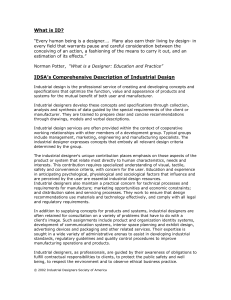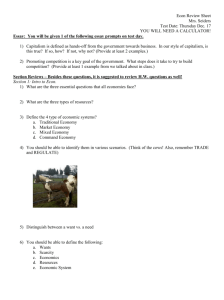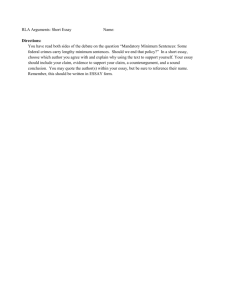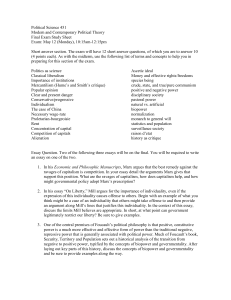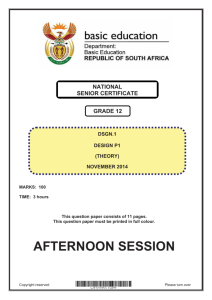Argument Summary II
advertisement
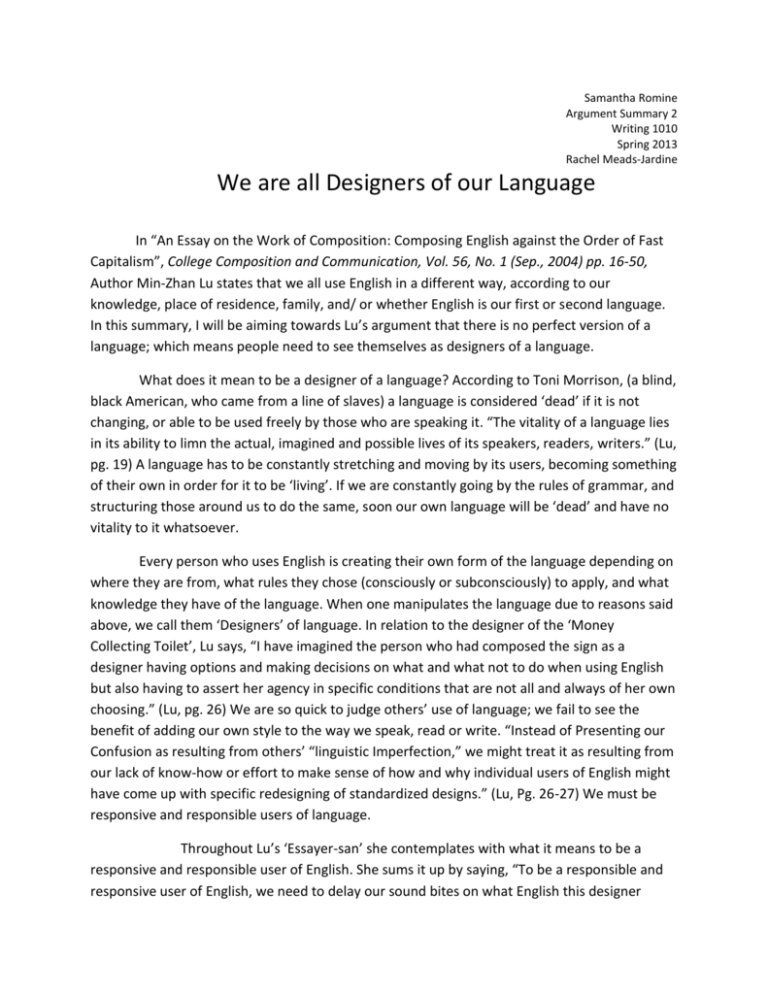
Samantha Romine Argument Summary 2 Writing 1010 Spring 2013 Rachel Meads-Jardine We are all Designers of our Language In “An Essay on the Work of Composition: Composing English against the Order of Fast Capitalism”, College Composition and Communication, Vol. 56, No. 1 (Sep., 2004) pp. 16-50, Author Min-Zhan Lu states that we all use English in a different way, according to our knowledge, place of residence, family, and/ or whether English is our first or second language. In this summary, I will be aiming towards Lu’s argument that there is no perfect version of a language; which means people need to see themselves as designers of a language. What does it mean to be a designer of a language? According to Toni Morrison, (a blind, black American, who came from a line of slaves) a language is considered ‘dead’ if it is not changing, or able to be used freely by those who are speaking it. “The vitality of a language lies in its ability to limn the actual, imagined and possible lives of its speakers, readers, writers.” (Lu, pg. 19) A language has to be constantly stretching and moving by its users, becoming something of their own in order for it to be ‘living’. If we are constantly going by the rules of grammar, and structuring those around us to do the same, soon our own language will be ‘dead’ and have no vitality to it whatsoever. Every person who uses English is creating their own form of the language depending on where they are from, what rules they chose (consciously or subconsciously) to apply, and what knowledge they have of the language. When one manipulates the language due to reasons said above, we call them ‘Designers’ of language. In relation to the designer of the ‘Money Collecting Toilet’, Lu says, “I have imagined the person who had composed the sign as a designer having options and making decisions on what and what not to do when using English but also having to assert her agency in specific conditions that are not all and always of her own choosing.” (Lu, pg. 26) We are so quick to judge others’ use of language; we fail to see the benefit of adding our own style to the way we speak, read or write. “Instead of Presenting our Confusion as resulting from others’ “linguistic Imperfection,” we might treat it as resulting from our lack of know-how or effort to make sense of how and why individual users of English might have come up with specific redesigning of standardized designs.” (Lu, Pg. 26-27) We must be responsive and responsible users of language. Throughout Lu’s ‘Essayer-san’ she contemplates with what it means to be a responsive and responsible user of English. She sums it up by saying, “To be a responsible and responsive user of English, we need to delay our sound bites on what English this designer needs and how she needs to use it until we have studied her understanding of her discursive resources: the options opened up and closed down by her actual language expertise, affiliation, and/or inheritance as well as by her sense of her actual, imagined, and possible self and life.” (Lu, pg. 36) We need to understand ones background and why they are using a language in the way that they are. We need to ‘walk a mile in their shoes’ so to say. In conclusion, Lu wants us to open up to the different uses of English. She wants us to keep our language ‘alive’ and become designers ourselves by keeping our use of English different from others according to our individual background, race, knowledge, creativity and personality. Without this, English will become dead, and the use of the language, as we know it, will cease to exist. Works Cited Lu, Min-Zhan. “An Essay on the work of Composition: Composing English against the Order of Fast Capitalism.” College Composition and Communication, 56 (2004) 19 Lu, Min-Zhan. “An Essay on the work of Composition: Composing English against the Order of Fast Capitalism.” College Composition and Communication, 56 (2004) 26 Lu, Min-Zhan. “An Essay on the work of Composition: Composing English against the Order of Fast Capitalism.” College Composition and Communication, 56 (2004) 26-27 Lu, Min-Zhan. “An Essay on the work of Composition: Composing English against the Order of Fast Capitalism.” College Composition and Communication, 56 (2004) 36
